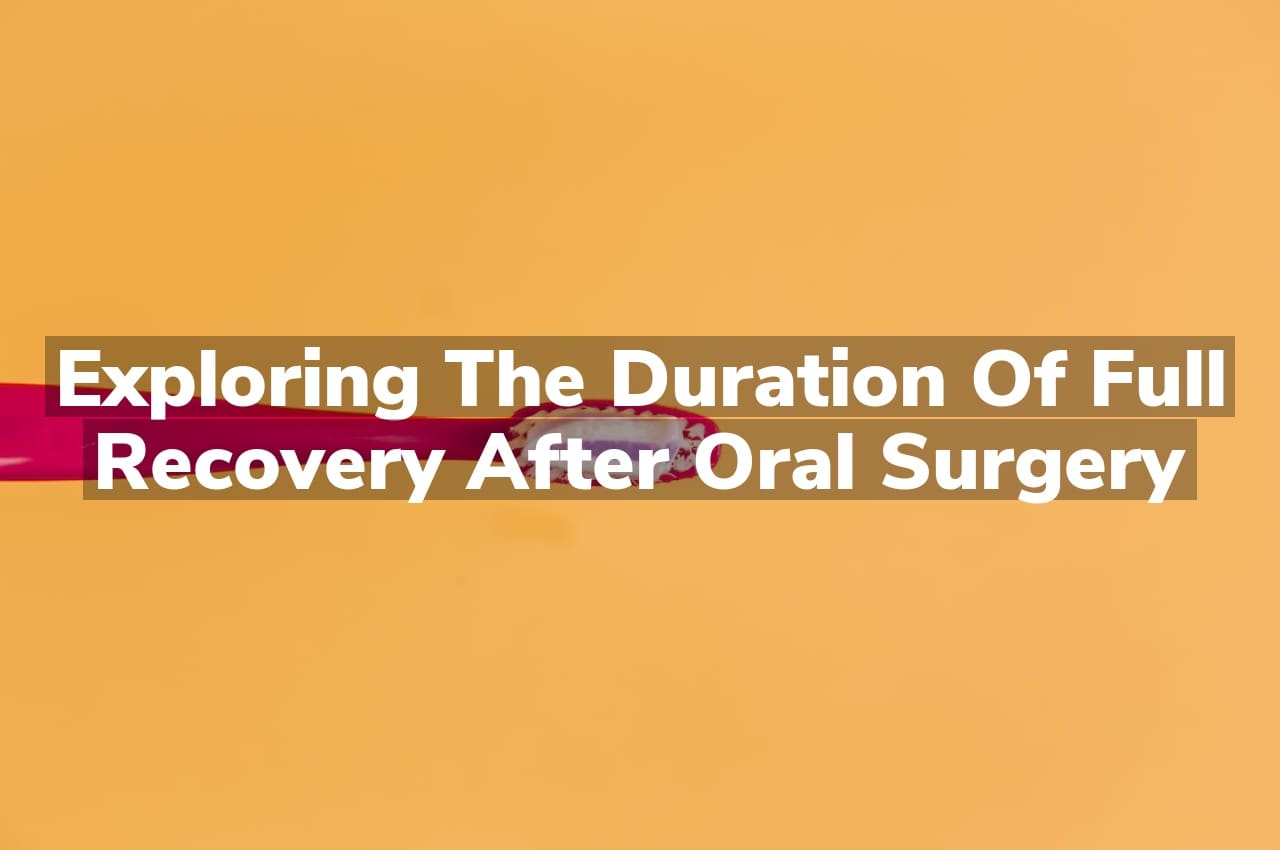How long does it truly take to bounce back from oral surgery? At New Haven Dental Center Family & Cosmetic Dentistry, we understand that recovery times can vary, but most patients can expect a full recovery within one to two weeks, depending on the complexity of the procedure and individual healing processes.
Initial Healing Phase Post-Surgery
The initial healing phase post-surgery is a critical period that sets the stage for a full recovery after oral surgery. During this time, patients may experience varying degrees of discomfort, swelling, and bruising, which are normal responses as the body begins to heal. It’s essential to follow your oral surgeon’s aftercare instructions to ensure a smooth and swift healing process. This typically includes guidelines on diet, oral hygiene, and activity levels. For those looking to manage swelling effectively, incorporating Effective Strategies for Minimizing Facial Swelling Post-Oral Surgery into your post-operative care can significantly enhance comfort and reduce recovery time.
The first 24 to 48 hours after your procedure are crucial for the initial healing phase. During this time, it’s important to apply cold compresses to the affected area to help reduce swelling and alleviate pain. Rest is also paramount; giving your body the chance to heal without additional stress is vital for a successful recovery. Adhering to these early post-operative measures not only promotes healing but also minimizes the risk of complications that could extend the duration of full recovery after oral surgery. Remember, each patient’s healing journey is unique, and while these general tips are beneficial, your oral surgeon will provide personalized advice tailored to your specific situation and procedure.
Factors Affecting Oral Surgery Recovery
The recovery period following oral surgery can vary significantly from one individual to another, influenced by a myriad of factors. One of the primary determinants is the complexity of the procedure itself; for instance, wisdom tooth extraction is typically associated with a quicker healing time compared to more invasive surgeries like jaw reconstruction. Patient-specific variables also play a crucial role, including age, overall health, and the presence of underlying conditions such as diabetes, which can impede healing. Additionally, adherence to post-operative care instructions, such as maintaining oral hygiene and avoiding certain foods or activities, is essential for a swift and smooth recovery. Lifestyle habits, like smoking or alcohol consumption, can also prolong the healing process and should be avoided.
Post-surgical care is paramount, and following the guidance of a professional is key to a full recovery. It’s important to select a Trusted New Haven Oral Surgeon who not only performs the surgery with expertise but also provides comprehensive aftercare instructions tailored to your specific needs. By choosing a skilled surgeon and understanding the factors that affect recovery, patients can better prepare for the healing journey ahead and ensure the best possible outcome.
Managing Pain During Recovery Period
After undergoing oral surgery, managing pain effectively is crucial for a smooth and full recovery. The duration of the recovery period can vary depending on the complexity of the procedure, but it’s essential to follow your oral surgeon’s guidelines for pain management. Typically, patients are prescribed medication to alleviate discomfort during the initial days post-surgery. It’s important to take these medications as directed and to keep your head elevated to reduce swelling. Additionally, applying ice packs and adhering to a soft food diet can help minimize pain and facilitate healing. Remember, consistent pain management not only ensures comfort but also aids in speeding up the overall recovery process, allowing you to return to your daily activities with ease.
Long-Term Healing and Tissue Regeneration
When considering the full recovery timeline after oral surgery, it’s crucial to understand the phases of long-term healing and tissue regeneration. While initial recovery may take a few weeks, complete tissue regeneration can extend over several months. This period is characterized by the gradual strengthening of the surgical site as new bone and soft tissue integrate and mature. Factors such as the complexity of the surgery, the patient’s overall health, and adherence to post-operative care instructions play pivotal roles in this process. To optimize long-term outcomes, patients should follow their oral surgeon’s guidelines on diet, oral hygiene, and activity levels, ensuring that the newly formed tissues are not compromised and have the best environment for successful healing.
Signs of Complications After Oral Surgery
While most patients experience a smooth recovery following oral surgery, it’s crucial to be vigilant for signs of complications that could extend the healing process. Persistent or worsening pain beyond the expected timeframe, excessive bleeding that doesn’t subside with pressure, or an elevated fever can all indicate potential issues such as infection or dry socket. Additionally, swelling that increases after the first few days, rather than diminishing, or the presence of pus or an unpleasant taste in the mouth could also signal a complication. If you notice any of these symptoms, it’s important to contact your oral surgeon promptly to ensure timely intervention and prevent further complications that could delay your full recovery.
Conclusion
For personalized advice or to schedule a consultation with our skilled oral surgeons at New Haven Dental Center Family & Cosmetic Dentistry, call us at 260-748-3696 or read our reviews on Google Maps.
